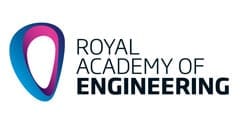The Royal Academy of Engineering in the United Kingdom has launched a new prize to reward innovation and in Africa.
The Africa Prize for Engineering Innovation will cover all disciplines from mechanical, civil and computing to biomedical, oil and gas, mining and electronic engineering. The Royal Academy says this is Africa’s biggest prize devoted to engineering innovation, and has called on engineers connected with universities and research institutions in sub-Saharan African countries to submit entries for the award. “Engineering is crucial to social and economic development throughout sub-Saharan Africa and globally,” says Malcolm Brinded, a fellow of the academy and chair of the judging panel for the prize. “The Africa Prize for Engineering Innovation aims to recognise the importance of African engineers and to stimulate innovation and entrepreneurship, while encouraging young people to become engineers by creating successful role models.” The new competition is designed to incentivise engineers to use their passion to develop innovative solutions to their country’s challenges. “By encouraging talented engineers to apply their technical and entrepreneurial skills to development challenges in sub-Saharan Africa, we can help build stronger engineering capability, better equipped to develop scalable solutions to all kinds of local and regional challenges,” says Brinded. South African judge of the Africa Prize for Engineering Innovation, Liesbeth Botha, says the prize will show how African engineers build countries, communities and economies, and put the spotlight on our education system to deliver professional engineers into the economy with the right knowledge and skills.Call for entries
The Royal Academy of Engineering invites engineers from all disciplines to submit innovations with a social, economic or environmental benefit. Entries must be early-stage innovations which have the potential to be scaled-up and which are ready for commercialisation. The deadline for entries is Friday 30 May 2014. The overall winner receives £25 000 (approximately R447 000) and every shortlisted entrant will receive six months of extensive mentoring, training and support in commercialising their innovation, as part of the Academy’s commitment to international development. “Over the year-long competition, we look forward to seeing great engineering ideas become viable projects that grow economies and improve societies,” says Brinded.






